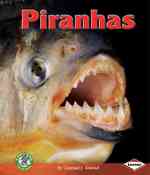- ホーム
- > 洋書
基本説明
«Historia Calamitatum» by Peter Abelard stands as one of the most remarkable medieval autobiographies, offering an extraordinary window into 12th-century intellectual life and personal tragedy. Written circa 1132 as a consolation letter to an unnamed friend, this foundational text combines philosophical depth with raw emotional honesty, chronicling Abelard's rise as a revolutionary scholastic philosophy teacher and his catastrophic fall through his infamous relationship with Heloise.
The narrative unfolds through Abelard's relentless intellectual battles his explosive Paris lectures that attracted thousands, his methodological innovations in Sic et Non, and his bitter disputes with traditionalists like William of Champeaux. The memoir's centerpiece remains his passionate affair with Heloise, his brilliant student: their secret marriage, her uncle Fulbert's violent revenge (Abelard's castration), and their subsequent monastic separations. Abelard portrays these events not as mere misfortunes but as existential crises forcing deeper engagement with faith and reason.
Beyond the Abelard and Heloise drama, the work documents crucial developments in medieval education, church politics, and the birth of universities. Abelard's descriptions of teaching debates at Melun and Corbeil reveal the ferment of early scholasticism, while his account of the Council of Soissons (1121) exposes the perilous relationship between innovative thinkers and ecclesiastical authority. Modern readers will recognize proto-modern themes of academic freedom, gender dynamics in education, and the psychological toll of intellectual isolation.







